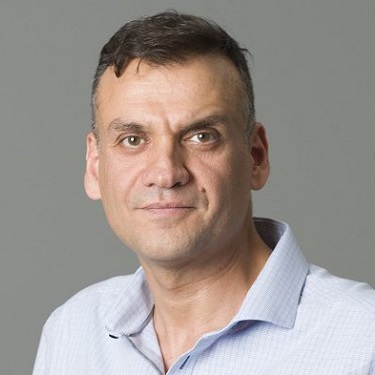In the early days of iGaming, a handful of platform providers held sway, dominating the market and limiting the choice of operators. However, a new breed of supplier has now emerged and is offering valid alternatives, particularly in emerging markets.
With that in mind, as regulation is passed for more of these new markets around the world, are operators still better sticking to the tried and tested? Or is it time they adopted a ‘horses for courses’ solution, picking their platform on a case-by-case basis?
SBC News sought the answers to these questions through representatives from two of the fastest growing suppliers to the industry – Bobby Longhurst, Chief Commercial Officer at Pronet Gaming, and Paul Myatt, Chief Business Development Officer at Aspire Global, as well as Avraam Tosounidis, Co-Founder & CFO for white label iGaming operator Campeón Gaming Partners.
SBC: To coin a Blackjack analogy, it’s ‘stick or twist’ for operators. But why should the ‘horses for courses’ approach prove to be the winning hand?
Bobby Longhurst (BL): Particularly within emerging markets, I’m a big believer in avoiding sticking with the ‘old’, simply because it may have worked before.
Most new jurisdictions necessitate extensive front-end and back-end development to adhere to regulatory requirements in emerging markets, and this can be a step too far for legacy technology to satisfy. Therefore, it is imperative that a blanket approach to multi-jurisdiction market entry be avoided at all cost, especially in a global environment.
The need for a dynamic solution that can adapt and scale appropriately with local market knowledge and expertise at its core, geared towards fast optimisation and market entry, has never been greater. Indeed, it is seen as a must-have for the new breed of operators looking to dominate globally.
SBC: Okay, so the most successful platforms must be set up to meet different operator demands worldwide, while also offering the right attention to detail on a local level?

BL: If operators are serious about their player base, acquisition strategy and engagement levels, then their platform solution must succeed on a local level. There is a lot of talk of localisation, and while many providers say their services are geared towards this, are they truly able to deliver?
When a product is fully configurable down to local taxation, PSPs, languages and currencies, as well as front-end customisations like event optimisation, daily jackpots, etc., which are all bespoke to individual markets, then you can say with some confidence that you are able to offer a solution that fits to the ever-growing needs of operators worldwide.
More often than not, legacy platforms cannot offer this level of detail in a single market, let alone across multi-jurisdictions with the speed needed to gain the competitive edge.
Let’s also not forget the multi-channel requirements that are seen as the industry norm now, with ever-growing mobile penetration at the forefront of operator minds in countries where retail has ruled previously – in Africa and LatAm, for example. The need to shift focus quickly is paramount and a full omni-channel solution, optimised to a local level, has never been more relevant.

Paul Myatt (PM): Today, unlike a few years ago, the effective implementation of a multi-vertical platform within a new market is of huge importance. Operators active in different regulated markets find themselves facing challenges on various fronts. While needing to adhere to strict regulatory and tax requirements, operators are also finding that their player acquisition costs increase. In turn, this leads to pressure on the profit margin.
In aiming to improve the situation, operators are looking to maximise the revenues gained from players they have acquired. The big question is, how is this achievable? We have found that when an operator has the ability to provide several gaming verticals to a player, the chance of that player sticking with that brand rather than heading elsewhere to find a particular product increases significantly. For this reason, a multi-vertical platform solution is not only desirable; it is a necessity.

Avraam Tosounidis (AT): Due to all-new software developments, operators now have access to more and more events and a plethora of betting markets. Also, operators benefit from a wide variety of integrated payment systems in the platforms, something that is helping a lot in different countries. As a result, we achieved a greater product competitiveness compared to the prior situation.
SBC: How is the opening of more and more markets necessitating this change to multi-platform?
PM: There are regulatory requirements and demands particular to each individual market. Before being in a position to certify the platform for each of these markets, an extensive process of technological development needs to be undertaken whereby such requirements are incorporated into the platform connectivity while not interrupting the player flow. That is, from registration through to login, depositing and describing bet limits.
Once changes have been made to a platform, these need to be certified by a relevant lab before being given the green light. It is such an involved process that often, a single market can take up to a year before certification – depending on the complexity of its requirements.
Duplicate this process across the number of regulated markets an operator wants to enter and it is easy to see why operators are unable to maintain their own platform catering for all of their global needs. As a third-party gateway platform provider, this is where we come in. It is what we do best.
AT: It is sure that different markets require different developments. From depositing and withdrawal methods, limits, to betting markets and gaming providers, a broad process prior to the integration of the new platform is required. It takes a great number of work hours not only for the integration but also for the maintenance and especially when you are operating a portfolio with more than one brand. This is where a multi-platform solution can help the most.
BL: That’s an interesting, multi-faceted question. Firstly, I’d say it’s a welcome change to open up previously impenetrable markets. It gives operators an opportunity to grow their footprint and implement technical change that supports the masses, forcing providers to further add their technical expertise to new markets that may require extensive development for entry.
These are all welcome challenges, something that I believe will drive technical evolution and the forward thinking amongst us to deliver a product that is truly agnostic to market requirements.
When new markets open up, organisations with high speed-of-response will be well placed to capitalise on these opportunities. It would be unreasonable to suggest that the major players wouldn’t be able to respond, but there is a clear advantage for new industry entrants – and those more established providers will inherently have to implement change to facilitate their entry.
For the operator, I can see this as being a fine balancing act. You want a partner who has the flexibility to get you to market quickly, but without sacrificing quality. Get that right and your long-term prospects will be unmatched.
SBC: What are the technical considerations of such an approach for international operators?
AT: Multi-platform development is allowing operators to implement their apps in one step for a range of platforms, avoiding repetition and increasing productivity. On the one hand, these approaches are offering suitable generality in order to allow provision of apps for several platforms.
On the other hand, they are enabling developers to capitalise on the specific advantages and possibilities of smartphones. Also, cross-platform solutions are based on different web technologies. As these technologies differ in their general architecture, they are providing various capabilities.
BL: At Pronet Gaming, we are committed to tailored solutions that work according to each specific market. We’ve invested heavily in our technology and the systems behind that to ensure that we are positioned to be able to deliver effectively and efficiently every time.
Looking at Africa in particular, USSD betting, which facilitates mobile-based wagering on lower grade devices without the need for WiFi, GPRS or 3G, has taken off in Tanzania, Kenya and Nigeria – where basic phone usage outstrips smartphones.
Opera Mini is another game changer, unlocking access to 120 million users of the mobile browser across the continent. Its dominance continues to grow from East to West, allowing operators to strip back a lot of the data heavy features of a mobile sportsbook, making it cheaper, easier, and quicker for punters to place bets.
Enabling USSD and Opera Mini compatibility has been a core focus of Pronet Gaming and, by doing so, we have given our partners a competitive edge. We believe that, with increased investment into online, combined with technological development and regulatory support, Africa’s mobile betting markets will soon be competing on the global stage. For those that want to be a part of the ride, having a local presence will be critical. It’s a critical time – but an exciting journey to be on.
PM: This gets to the crux of the matter. The simple fact is that international operators don’t need to do much work at all if they are onboarding with a third-party, multi-vertical platform solution. In order to enter the market they desire, all that is needed is to plug their front end website into the open API infrastructure of the gaming platform and to start promoting it.
With all of those difficult, time-consuming responsibilities removed, it then becomes a case of operators doing what they do best – developing and selling their brand into that market.
SBC: Okay so we’ve covered the technical side, and the associated speed to market. How scalable is such an approach and what are the financial implications of multiple integrations?
BL: I can’t talk for other providers, but for us it’s extremely scalable. That’s a key part of our offer. Our clients don’t just seek scalability, they require it as they grow operations in line with their markets.
In terms of the financial implications of multiple integrations, there are clearly going to be more costs involved with the more integrations you require, but we’re structured to be able to give our customers scalability with clear and effective cost management. Where viable, we can work across our network to implement integrations in such a way that the cost implications can be absorbed across the portfolio – meaning we can reduce the stress of these kinds of concerns for our clients.
AT: The gaming industry generally is one of the least predictable markets in terms of growth and applications. Success and failure are determined differently in the gaming industry, measured differently and managed differently. The cost of developing a multi-platform solution can be considered as high-risk investment but also mandatory in order to stay competitive in the industry.
Nevertheless, there can be innovative and discrete ways to minimise the investments risk and turn it into highly profitable projects once a proper monetisation strategy and philosophy is applied.
PM: When a platform provider has a clear strategy with a long-term goal, the investment is sizable but ultimately, it pays off. The temptation may be to act quickly in order to go live with a number of integrations. Instead, what we believe to be a better way forward is to create a solution built around an infrastructure that is truly multi-vertical, multi-regulation, multi-brand and multi-tenant.
There’s no escaping the fact that this is not a quick fix – it takes longer to build, but it acts as the foundation for far greater success in the future. There are many simplified platforms that exist today, but when scalability is needed they falter. The financial implications of such failures are significant.
In the case of the multi-vertical, multi-regulation platform structure, the journey into the future is one that presents itself with a positive outcome in terms of revenues and royalties.









